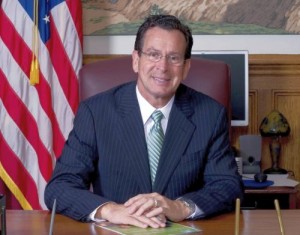
HARTFORD, Conn. — Connecticut Governor Dannel Malloy Thursday signed into law House Bill (HB) 6695 — legislation protecting LGBTQ youth in the state from the dangerous and discredited practice of so-called “conversion therapy.”
The Connecticut Senate unanimously approved the bill Thursday, and the state House of Representatives approved the bill just last week. Connecticut becomes the ninth jurisdiction — and the second state so far this year — to enact these crucially important protections. California, New Jersey, the District of Columbia, Oregon, Illinois, Vermont, New York, and New Mexico all have laws or regulations protecting youth from this abusive practice. A growing number of municipalities have also enacted similar protections, including cities in Ohio, Pennsylvania, and Florida.
“No child should be subjected to this abusive practice,” said HRC President Chad Griffin. “Medical professionals agree this extremely harmful and discredited practice not only doesn’t work, but can also have life-threatening consequences. We thank Governor Malloy and the Connecticut General Assembly for passing these crucially important protections for the state’s LGBTQ youth.”
“Conversion therapy,” sometimes referred to as “sexual orientation change efforts” or “reparative therapy,” encompasses a range of practices that seek to change an individual’s sexual orientation or gender identity or expression. These practices are based on the false premise that being LGBTQ is a mental illness that needs to be cured — a theory that has been rejected for decades by every major medical and mental health organization.
There is no credible evidence that conversion therapy can change a person’s sexual orientation or gender identity or expression. To the contrary, research has clearly shown that these practices pose devastating health risks for LGBTQ young people such as depression, decreased self-esteem, substance abuse, homelessness, and even suicidal behavior. The dangerous practice is condemned by every major medical and mental health organization, including the American Psychiatric Association, American Psychological Association, and American Medical Association.











